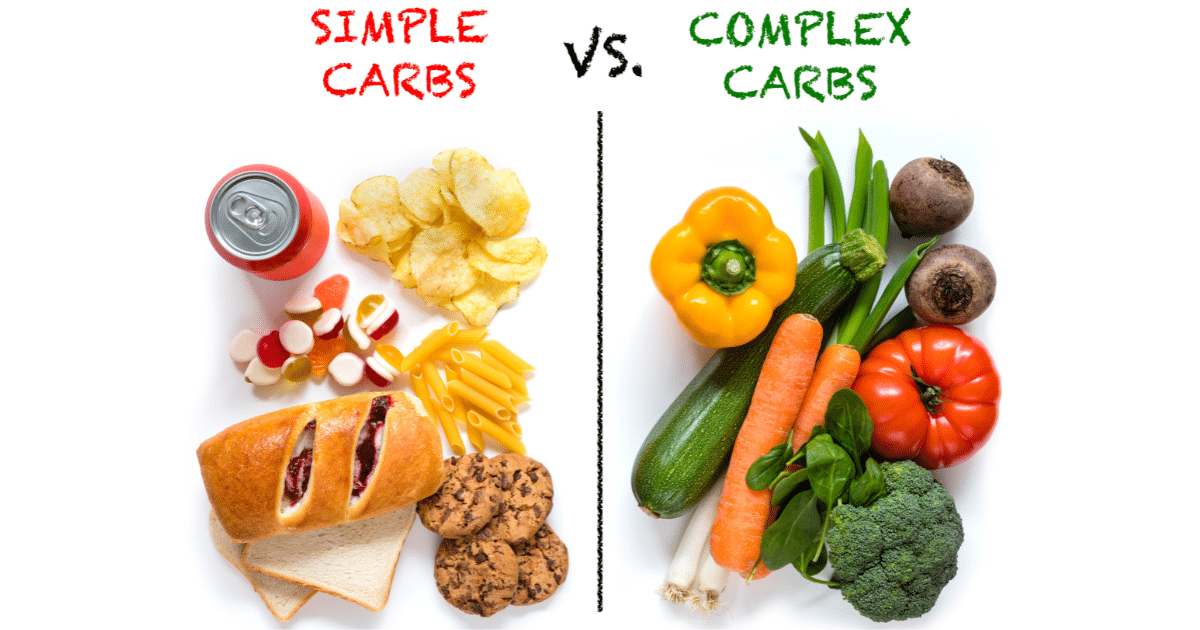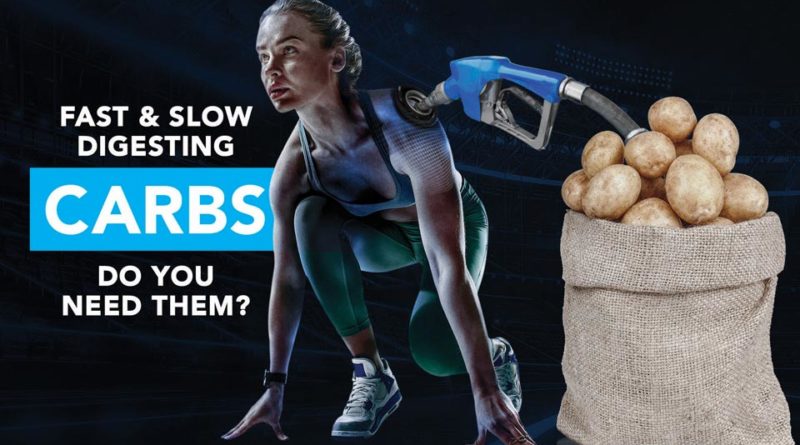Fast and Slow-Digesting Carbs: Do You Need Them?
For some reason, carbohydrates are demonized these days, and people are drastically reducing their intake or eliminating carbs altogether. The fact is, you need carbohydrates — especially if you’re an endurance athlete. With fast and slow-digesting carbs, you need a mix in order to help improve endurance and allow your body to properly recover from training and competitions.
The secret to staying fit is not just a great workout program but also what you eat before and after the training session. Even if you are not an endurance athlete but someone who merely lives an active lifestyle, gaining the necessary knowledge about the nutrients you need and consume is the first step to take your performance to the next level and get better results from your efforts.

It’s commonly said that carbs are unhealthy, they convert into sugar, get stored as body fat, cause weight gain, and reduce your ability to burn fat. You’ve probably heard all of this and more! But the truth is — CARBS ARE FUEL FOR YOUR BODY.
Related Article: 5 Ways to Carb Up Effectively Without Getting Fat
Want to maintain peak performance and recovery? There are different carbohydrates that come into play.
Disclaimer: This article is for informational purposes only and is not meant to treat or diagnose any condition. It is recommended that you speak with your doctor before starting any exercise program, changing your daily nutrition, or adding any supplements to your regimen.
Table of contents

Fast and Slow-Digesting Carbs
When looking at carbohydrates, you have two types — fast and slow-digesting carbs. These are also known as simple and complex carbohydrates.
Fast-Digesting Carbs
If you were to look at simple or fast-digesting carbs, you might consider sources like white rice, a candy bar, cookies, ice cream, cereal, or even pasta. These types of carbs hit the system quickly and spike insulin while also rapidly causing an increase in energy. The downside of fast-digesting carbs is that just as quickly as they hit and produce energy, they are used up, and your energy levels can crash. Clearly, this isn’t ideal if you’re an athlete, but when you combine both fast and slow-digesting carbs at certain times, they can be extremely beneficial.
Related Article: Carb10 — Performance-Enhancing Carbohydrates for Athletes
Slow-Digesting Carbs
Slow-digesting carbs are also known as complex carbs. As the name implies, slow-digesting carbs break down slowly over time, minimizing the insulin spike and providing more of a sustained release of energy. When you think of complex or slow-digesting carbs, you may consider foods like sweet potatoes, whole grain rice, legumes, oats, and whole grain breads.
Does Your Carb Source Really Matter for Performance?

Yes, the source of carbohydrates can indeed impact athletic performance and overall energy levels. Carbohydrates serve as the primary fuel source for physical activity, particularly during high-intensity exercise. However, not all carbohydrate sources are created equal, and the type of carbohydrate consumed can influence performance in various ways:
- Complex vs. Simple Carbohydrates: Complex carbohydrates, found in whole grains, fruits, vegetables, and legumes, provide sustained energy release due to their slower digestion and absorption. In contrast, simple carbohydrates, such as sugars and refined grains, provide quick energy but may lead to rapid spikes and crashes in blood sugar levels.
- Glycemic Index (GI): The glycemic index measures how quickly carbohydrates raise blood sugar levels after consumption. Foods with a high GI cause a rapid spike in blood sugar, followed by a quick drop, which can lead to fatigue and decreased performance. Choosing carbohydrates with a lower GI, such as whole grains, fruits, and vegetables, can provide more stable and sustained energy levels.
- Fiber Content: Carbohydrate sources high in fiber, such as whole grains, fruits, vegetables, and legumes, not only provide sustained energy but also contribute to feelings of fullness and satiety. This can be beneficial for athletes by promoting steady energy levels and preventing hunger during prolonged exercise.
- Nutrient Density: Carbohydrate-rich foods that are also rich in vitamins, minerals, and antioxidants can provide additional benefits for overall health and performance. Choosing nutrient-dense carbohydrate sources, such as fruits, vegetables, and whole grains, can support optimal functioning of the body and enhance recovery from exercise.
- Individual Tolerance: While general guidelines can be helpful, individual tolerance to different carbohydrate sources can vary. Some athletes may perform well on a higher-carbohydrate diet rich in whole grains and fruits, while others may prefer a lower-carbohydrate approach with a focus on vegetables and legumes. It’s essential for athletes to experiment and find the carbohydrate sources that work best for their bodies and performance goals.
Why Do You Need Carbs?
Carbohydrates are one of the most important parts of your diet if you want to live a healthy and active life. That said, you also need to be conscious of the types of carbs you’re consuming and when. And if you are an endurance athlete, you simply cannot eliminate consuming carbs. Below are a few reasons why you need carbs and when you should use both fast and slow-digesting carbs.
Click here to continue reading…


*Disclosure: This article may contain affiliate links or ads, which means we earn a small commission at no extra cost to you if you make a purchase through these links. These commissions help support the operation and maintenance of our website, allowing us to continue producing free valuable content. Your support is genuinely appreciated, whether you choose to use our links or not. Thank you for being a part of our community and enjoying our content.
PLEASE CONSIDER SHARING THIS ON YOUR SOCIAL MEDIA TO HELP OTHERS LEARN MORE ABOUT THIS TOPIC.





